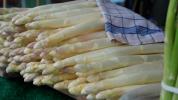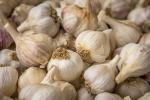H2020 OK-Net EcoFeed Project: Organic Knowledge Network on Monogastric Animal Feed
- Type Project
- Status Filled
- Execution 2018 -2021
- Assigned Budget 1.990.368,75 €
- Scope Europeo
- Main source of financing Horizon 2020
- Project website Proyecto OK-Net EcoFeed
Organic farming is experiencing a boom in several European countries. However, there is a dependence on imported feed, particularly protein, for pig and poultry production. Supplying quality organic protein feed for organic farming poses a significant challenge. To address this problem, the EU-funded OK-Net EcoFeed project aims to achieve 100% use of organic and locally sourced feed for monogastric animals.
The project will achieve its objective by consolidating existing scientific and practical knowledge and establishing a European network of innovation clusters that promote knowledge exchange and co-creation among farmers, businesses, researchers, and advisors. It will also develop tailored tools to meet stakeholder needs and incorporate knowledge on organic feed for pigs and poultry into the Organic Farm Knowledge platform (https://organic-farmknowledge.org/).
A network of 12 Innovation Groups (IGs) was established in 8 countries. The groups, which include farmers and other industry partners, held five official meetings with invited researchers, where potential solutions and relevant results from the testing activities were discussed. Literature on feeding monogastrics 100% organic and regionally produced feed was compiled in a database, while the 12 Innovation Groups identified knowledge gaps. These knowledge gaps were compared with the literature available in the database and with additional experience derived from research. This exercise resulted in a knowledge synthesis on feeding organic monogastrics, a scientific review article published in the journal Sustainability in February 2021, and a report on research needs and barriers to innovation, as well as recommendations for a better-targeted research and innovation agenda.
This report and the scientific review article can serve as a basis for future research aimed at more sustainable food production and for disseminating results and best practices among the scientific community. A total of 18 GI trials were conducted in eight of the participating countries. Each trial activity was translated into user-friendly dissemination materials, such as practice briefs (PS) following the common EIP-AGRI format and short videos in the local language with English subtitles. Of the 18 GI tools tested, 50% have been adopted by participating practitioners, including changes in on-farm practices and the adoption of new technology. For each tool tested, PS and videos for tool implementation, end-user materials, and developed solutions were produced. These materials were disseminated among organic farmers. OK-Net EcoFeed partners created 31 fact sheets and 5 videos based on existing knowledge, and 16 tools were translated into one or more languages.
Two ration planning tools were developed, one for pigs and one for poultry, to help farmers calculate their own feed on the farm and improve local feed into organic feed for monogastrics. The OFK, online since 2018, is a new version of the OK-Net platform built by OK-Net Arable. The platform now allows uploading of end-user material from other thematic networks and multi-stakeholder projects, and covers all practical information relevant to organic farming. The OFK toolkit was expanded with 139 OK-Net EcoFeed tools and descriptions. These include 117 PAs and 22 videos on pigs, broilers, layers, feeding, and ration planning, used for online knowledge dissemination. Practice summaries were submitted to the EIP-AGRI website using the EIP Common Practice Summaries Format.
A key objective of organic farming is to feed animals with feed produced on the farm itself or in neighboring regions. However, this remains a challenge for many European farmers. Indeed, feed production and livestock farming, particularly pig and poultry farming, are often concentrated in different regions, necessitating the transport of imported feed over long distances to reach the farm. This problem is even more complex in the case of protein feed, as the availability of organic protein can be low or sometimes nonexistent. Importing feed entails economic disadvantages for farmers and can compromise sustainability and animal welfare values, as well as reducing consumer confidence. The OK-Net Ecofeed project supported on-farm feed autonomy and was committed to helping producers achieve 100% organic rations for monogastric animals.
The work carried out aimed to address organic feed objectives for the coming years, including reducing production costs, improving sustainability and animal welfare, and meeting consumer expectations regarding production traceability. In this context, the overall objective of OK-Net EcoFeed is to help farmers, breeders, and the organic feed processing industry achieve the goal of 100% use of organic and regional feed for monogastric animals, particularly pigs, broilers, and laying hens. The four specific objectives are:
- The project synthesized available scientific and practical knowledge on the production of organic and regional foods for monogastric animals.
- It created a European network of innovation clusters and facilitated the exchange and co-creation of knowledge between farmers, commercial actors, researchers, and advisors.
- It compiled end-user materials and developed new tools tailored to the needs of farmers and commercial stakeholders. All materials and tools were summarized in the common EIP format for practice summaries.
Finally, the project expanded the Organic Farm Knowledge platform (https://organic-farmknowledge.org/) to include the topic of monogastric animal feed. The project built on the experiences of OK-Net Arable, a thematic network addressing organic arable crops. OK-Net EcoFeed was a logical continuation of OK-Net Arable, connecting feed cultivation, processing, and animal production. The OK-Net EcoFeed consortium was coordinated by IFOAM Organics Europe and comprised 11 partners and 8 linked third parties from 11 countries.
The EU meat and dairy industry relies heavily on imported soy products for animal feed. A unique information database helps organic farmers move toward 100% organic feed. Each year, the EU imports around 14 million tons of soy to feed chickens, cattle, and pigs. This poses a particular challenge for organic producers, who want to avoid the environmental and sustainability issues associated with foreign soy production, such as tropical deforestation. The EU-funded OK-Net EcoFeed (Organic Knowledge Network on Monogastric Animal Feed) project investigated alternative sources of protein-rich feed that will help Europe become less dependent on imported protein. Seminal Ideas “We are spreading innovation across Europe,” says Ambra De Simone, project coordinator. “We are focused on building a network of stakeholders, compiling existing knowledge, and highlighting solutions that could be useful in all regions.”
The project, coordinated by the International Federation of Organic Farming Movements - European Union Regional Group (IFOAM Organics Europe), brought together a consortium of 18 partners in 12 countries. These include feed processors, farmers, research institutes, universities, and advisory agencies. During the previous EU-funded project, OK-Net Arable, hundreds of pages of material were produced and made available to farmers on the Organic Farm Knowledge (OFK) platform, identifying potential solutions for increasing their yields. “Opening the door to animal feed was the obvious next step,” adds De Simone.
The OFK platform facilitates intuitive access to a wide range of practical tools and resources, such as audios, books, reports, brochures, guidelines, and videos, and promotes knowledge exchange between farmers, farm advisors, and scientists. During OK-Net EcoFeed, the platform was expanded to include material on sustainable feed. “One of the main goals was to find out what worked in one region and somehow adapt it to work in another,” explains De Simone. “The first step was to compile all the existing systems. Then, the researchers investigated those that could be applied to different areas.” Presentation suggestions The project conducted 18 field trials with alternative feed, involving more than 9,000 chickens and 1,000 pigs. “A major issue in the organic sector is protein availability,” adds De Simone. “Most feed is soy-based, which is not sustainable for the organic sector; we are looking for alternative sources of protein.” This included Camelina sativa, an oilseed crop related to flax, investigated by researchers from the Italian Association for Organic Farming (AIAB) (website in Italian).
In Spain, Ecovalia (website in Spanish) used protein-rich brewer's yeast as a feed supplement for pigs. The consortium also developed a ration planning tool, an Excel-based application that allows farmers to calculate their own feed requirements based on their animals' breed, growth stage, and feed type. "This is the only free software that adequately meets the needs of organic animal producers," says De Simone. "The calculations are independent of the food industry and tailored to the specific conditions of organic farming."
The group is seeking additional funding for the development and maintenance of the OFK platform, which contains information on more than 2,000 agricultural solutions. "It started with arable crops and animal feed, but many other projects are joining," concludes De Simone. "We aspire to be the EU's leading platform for knowledge exchange on organic products."
The project results were summarized for feed industry professionals and stakeholders, advisors, innovation promoters, and scientists. Research needs and barriers to innovation were identified, and recommendations for a more focused and shared research and innovation agenda were proposed. IG members conducted 18 practical tests and produced materials, including PAs following the common EIP-AGRI format and at least one short video in the local language with English subtitles. Furthermore, the interaction between livestock farmers' knowledge and scientific research results was increased, as was the exchange of experiences among them, enabling information sharing between groups from different countries.
Various solutions, both from existing knowledge and those developed during the project, were compiled and tailored to the needs of livestock farmers, feed processors, and breeders. These solutions are available as easy-to-read materials for end-users and translated into all identified relevant languages. The ration planning tools developed for pigs and poultry will allow farmers to calculate their own feed rations for pigs, broilers, and laying hens, regardless of the feed industry.
The "Knowledge on Organic Agriculture" platform will facilitate exchanges between farmers, agricultural advisors, and scientists, and will provide farmers with practical organic solutions. A plan for the platform's continuity has been developed, including suggestions on how it can contribute to other projects and how it can be used by national farmers' organizations.
- INTERNATIONAL FEDERATION OF ORGANIC AGRICULTURE MOVEMENTS EUROPEAN UNION REGIONAL GROUP (IFOAM Organics Europe)







